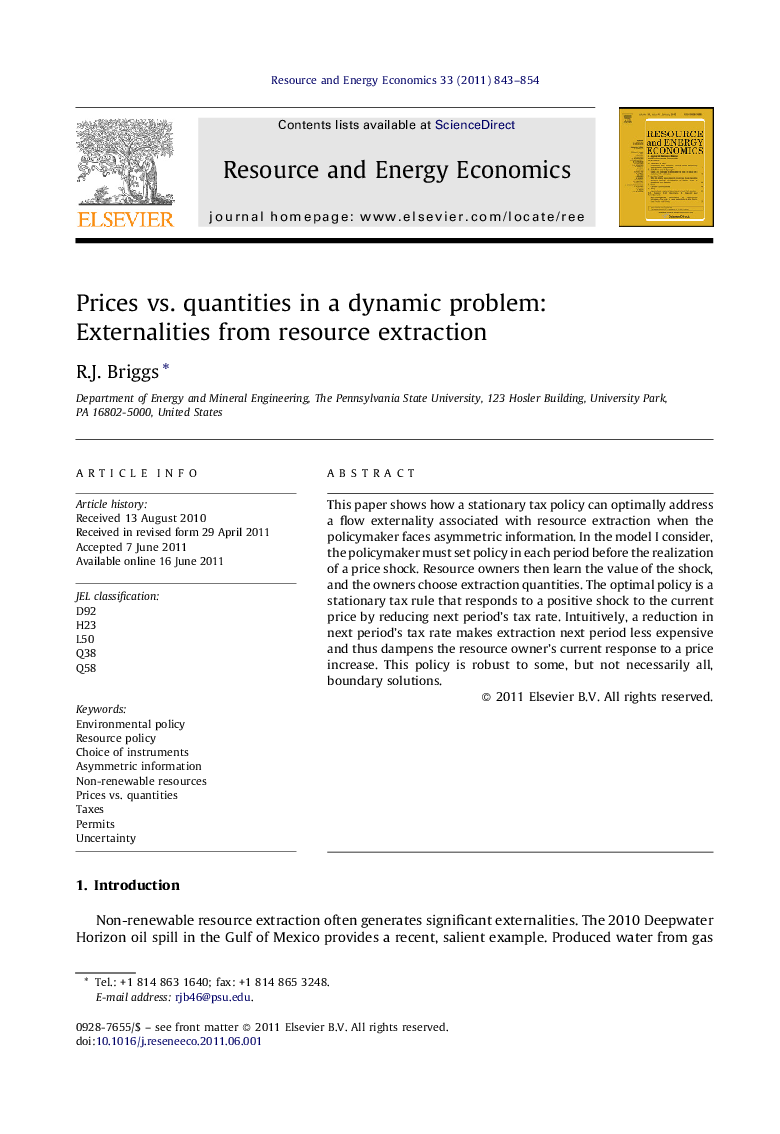| Article ID | Journal | Published Year | Pages | File Type |
|---|---|---|---|---|
| 985475 | Resource and Energy Economics | 2011 | 12 Pages |
This paper shows how a stationary tax policy can optimally address a flow externality associated with resource extraction when the policymaker faces asymmetric information. In the model I consider, the policymaker must set policy in each period before the realization of a price shock. Resource owners then learn the value of the shock, and the owners choose extraction quantities. The optimal policy is a stationary tax rule that responds to a positive shock to the current price by reducing next period's tax rate. Intuitively, a reduction in next period's tax rate makes extraction next period less expensive and thus dampens the resource owner's current response to a price increase. This policy is robust to some, but not necessarily all, boundary solutions.
►The paper considers a resource extraction problem with a flow externality. ► A tax policy can induce the first best when extraction choices are interior. ► Quantity policies cannot be similarly designed. ► The tax policy is not robust to all boundary solutions.
